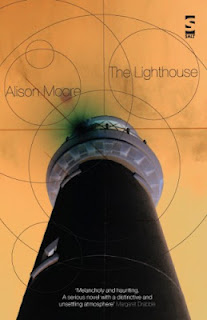I don’t normally buy paranormal fiction, though I read the 'Turn of the Screw' at university and last year very much enjoyed Dee Weaver’s indie published novel ‘The Winter House’. So I wondered how I’d feel about Linda Gillard’s new novel ‘The Glass Guardian’. The ingredients intrigued me - a musical mystery, a concealed stained glass window, a first world war journal, and a love affair with a ghost, all set in a magnificent, dilapidated house on the Isle of Skye.
Ruth Travers, a TV gardening presenter, has been recently bereaved, losing her lover, her father and her beloved Aunt Janet within the space of a year. Living alone on the island in the house she has inherited from her Aunt - a famous classical composer - Ruth believes she may be losing her mind when things begin to go bump in the night and a strange red-headed figure in a kilt begins to materialise in the shrubbery.
‘For a start, [ghosts] don’t exist. Obviously. And even if they did, you aren’t the kind of sad weirdo who’d see one. Ghosts only happen to attention-seeking fantasists with over-active imaginations’. Ruth is a very normal woman who doesn’t seem to fit any of the categories she mentions, although her life has been so disrupted by grief, if does cross the reader’s mind that she might not be the best person to make an assessment. Can her judgement be relied on?
There are two other, rather more substantial, men in Ruth’s life; the first is her childhood friend Tom who has been working as a gardener for her Aunt Janet. Tom is single, muscular, and not only attractive, but attracted to Ruth. Then there is a persistent Canadian musicologist, anxious to look at her Aunt’s papers and resolve an old mystery regarding one of her most famous compositions. But it’s the ‘phantom lover’ who occupies Ruth’s thoughts, to the point of obsession.
This novel sits firmly in a genre I didn’t even know existed, which is listed on the internet as ‘Adult Paranormal Romance’. The contents of books in this category are pretty much what the label implies - adult romance with paranormal elements. I had a quick skip through some examples and quickly realised that, although the Glass Guardian fits the description of the genre, it is much, much better written than most - as you’d expect from an author whose books are described on Amazon as ‘Women’s Literary Fiction’.
Linda Gillard knows how to write a page-turner. Among her novels House of Silence is still my favourite, though I also loved Untying the Knot. Many of her readers have liked the Glass Guardian more than her other novels, but I wouldn’t go as far as that. I’m a complete cynic when it comes to the paranormal - there’s always a knot of cold logic in the centre of my brain that won’t suspend its disbelief, however much I’m enjoying the tale. But enjoy it I did, in spite of my scepticism. I wanted to stand in the garden facing the sea and feel the wind blowing in from the Atlantic and glimpse the mountains at my back. I wanted to be in that kitchen with its warm Aga, a glass of Talisker in my hand, and a very attractive piece of Scottish talent doing the washing up.
The author has already anticipated readers’ reservations - as one of the characters remarks: ‘I used to be more sceptical myself, when I was young and not easily impressed, but I have a clever little sister who’s a particle physicist. Believe me, by the time you’ve had String Theory explained to you, ghosts seem really quite mundane and the existence of time travel only a matter of - well, time.’
I finished reading the novel on a ferry, at night, in the middle of the north sea, and I thought how rare it is to find an author whose books you can trust to be a reliably good read without being the same novel written over and over again. I have to agree with a fellow reviewer who wrote that ‘Linda Gillard writes convincingly and authentically about emotions and relationships, creating believable female characters and attractive male leads, incorporating serious elements, and humour, as well as always delivering a highly readable, compelling storyline that keeps me engrossed.’ I still haven’t read 'A Lifetime Burning' or 'Emotional Geology', so it’s back to the Kindle store. I’m a quick reader, so I hope she has more in the publishing pipeline!
This review first appeared as the Hallowe'en choice on the Indie E-Book Review which features independently published e-books. The Glass Guardian is my October E-book of the month.

